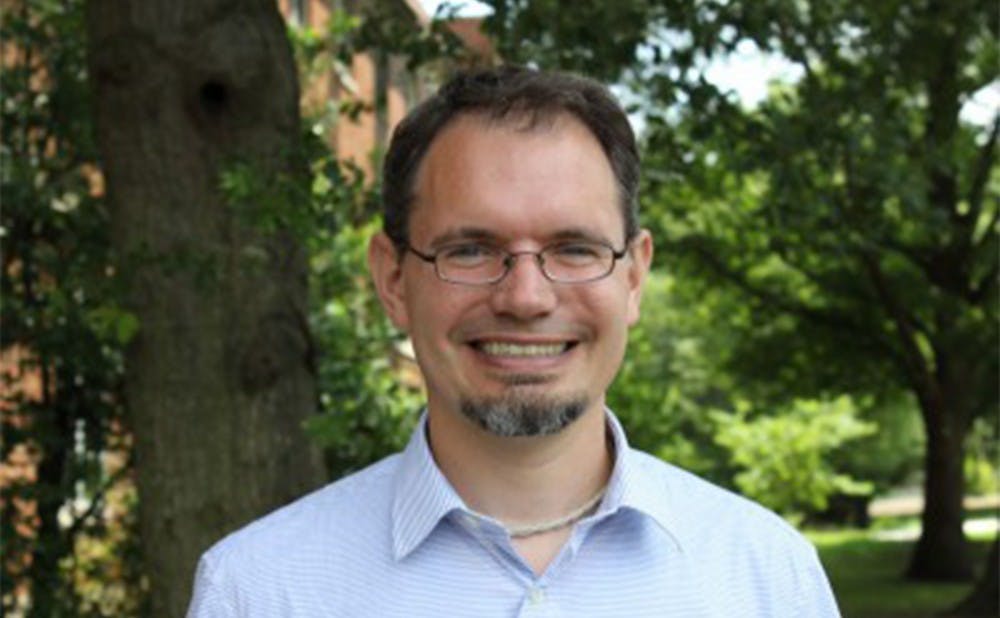A Duke professor's research on Nepalese child soldiers demonstrates that resilience could curb the effects of post-traumatic stress disorder.
For nearly twenty years, Brandon Kohrt—assistant professor of psychiatry, global health and cultural anthropology—has been conducting mental health research projects in Nepal. His latest initiative, which involved working with child soldiers who fought in the country’s civil war as well as children that experienced the war as civilians, has attempted to highlight the role of resiliency in combatting post-traumatic stress disorder.
Kohrt started working with child soldiers in 2006 just after the end of the Nepalese Civil War. He conducted research with the Transcultural Psychosocial Organization, a Nepalese non-governmental organization, to help find better ways to reintegrate child soldiers into their communities post-war.
“We first started out finding out different possible avenues to help child soldiers reintegrate into their communities, to return to school, to be accepted by their families, to be allowed to participate in community activities and we also then began a large research project with former child soldiers,” Kohrt said.
The child soldiers who participated in the study were primarily either those who had returned home or fled the army on their own accord, Kohrt explained. He interviewed the child soldiers in 2007 just after the war, in 2008 after a 12-month intervention program by United Nations Children's Emergency Fund and in 2012 about five years after their traumatic experience in the war.
His most recent publication, based on the findings from 2012, shows that resilience is a key factor in determining how individuals respond to trauma at the molecular level.
“What we did in this study was that we defined resilience in the fashion of an individual self-efficacy of their own ability to be able to solve problems they face in the world and cope with those challenges,” Kohrt said. “Our goal and our work is to be able to promote these qualities of self-efficacy and resilience.”
The primary mechanisms for achieving this, according to the study, were to engage child soldiers with their peers and make them feel like contributing members of the community.
“Our idea of resilience is to help people help others. So for former child soldiers, a lot of that is about being able to help their peers, being able to feel like they're making a difference in their community,” Kohrt said.
The research, which is primarily funded by the National Institutes of Health, also looks at mental health integration into primary care for countries like Nepal, which has very few psychiatrists. This is primarily achieved by providing mental health services through primary care doctors and community health workers.
Kohrt has already begun to put his plan into action by finding alternative ways to provide mental health services through schools.
“One of the projects we completed this summer is a school-based mental health program for students in the most affected areas," he said. "A lot of that intervention work has been built upon the findings of our work with child soldiers and the impact of early trauma on child and adolescent development."
Kohrt’s commitment to supporting mental health patients in the most vulnerable places around the world has culminated in a public charity called HeartMind International.
“Through that organization, he has been providing free-of-cost mental health services in the poorest parts of Nepal,” said Sauharda Rai, a Nepalese native and research program coordinator at the Duke Global Health Institute. “He’s very dedicated to Nepal and has been working there for a very long time.”
Rai has been supporting Kohrt’s research in Nepal for the past five years.
HeartMind International provides a number of different relief sources for people in Nepal. Most recently it has been supporting those affected by the 2015 earthquake.
“This past year we’ve been working on earthquake relief programs, looking at people that are most affected by the earthquake and what mental health services they need,” Kohrt said.
Kohrt said that he hopes to continue his research in Nepal, noting that more work needs to be done, particularly with developing a universal school-based mental health program to support those suffering from the consequences of traumatic events. He noted that he would also like to continue to study the group of child soldiers later into their lives to assess the long-term impacts of their childhood trauma on their adult lives.
“Our hope is to continue to follow these child soldiers over time to see what their life is like and to see what the impact of early trauma is on their overall physical and mental health,” Kohrt said.
Get The Chronicle straight to your inbox
Sign up for our weekly newsletter. Cancel at any time.

